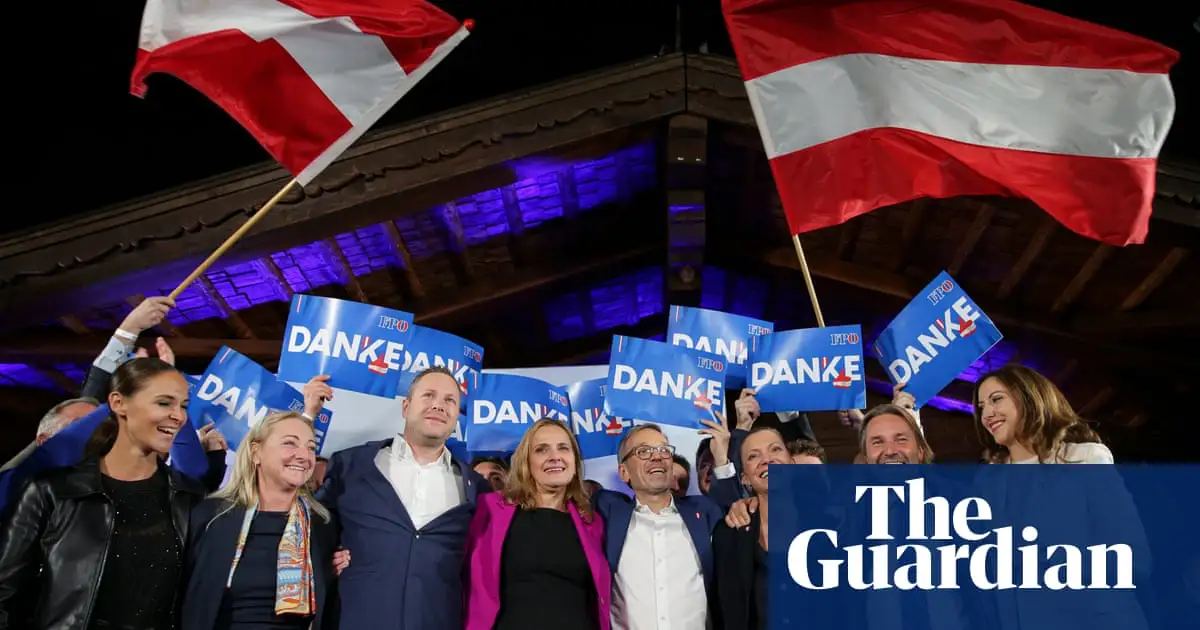Austria’s main parties are preparing to begin tense wrangling to form a government amid warnings about the country’s democracy after the far right’s watershed victory in a general election in which angry voters punished centrist incumbents over migration and inflation.
On Sunday, the anti-Islam, Kremlin-friendly Freedom party (FPÖ) scored its strongest result since its founding after the second world war by former Nazi functionaries and SS officers with just over 29% of the vote. The outcome surpassed expectations and beat the ruling centre-right People’s party (ÖVP) by nearly three percentage points. The centre-left opposition Social Democratic party (SPÖ) turned in its worst-ever performance with 21% while the Greens, junior partners in government, sank to 8%.



Yes, I fully agree. I phrased myself badly since I should have used “possible” instead of “likely”. My bad >~<
Even tho there is a 3rd way in which the ÖVP kicks Nehammer and the “Brandmauer” (stance against right wing populists) with him and forms a coalition with the FPÖ I agree the Grand coalition (ÖVP & SPÖ) is the more likely option they could get NEOS or Greens into the boat (both would get them a 2/3 majority) but they don’t need to to get a simple majority. As for why it is likely: the ÖVP can stick to their word that a coalition with the FPÖ is out of question and it would be the major party in any non-FPÖ coalition, it could keep Nehammer as a chancellor.
As for the SPÖ they could showcase Babler’s econimically social politics by getting the ministry of health and education (and maybe if they are really good at negotiating the finance, environment or agriculture ministry as well) which could boost their reputation whilst maybe silencing Doskozil.
Further the SPÖ could delegate the hot potato that is migration to the ÖVP and give them the ministry of inner and outer affairs.